Deadeye Dick is the eighth book in Rachel’s Best Vonnegut Reading Order.
I promised myself, and all of you, a certain something when I tried and failed to finish Player Piano. I promised I would finish all the other Vonnegut novels for the sake of the blog. I proceeded through the Vonnegut oeuvre, taking to some books more than others but never regretting my decision to finish all of them.
Then I came to Deadeye Dick. And all I can say is, you all are lucky I like you, because I wanted to finish this book like I wanted to finish the potato-arugula cheeseless pizza my mother tried to feed me when I was thirteen. (I didn’t finish the pizza. I finished this book. Take it as a compliment; unfair comparisons are the sincerest form of flattery.)
That’s not to say Deadeye Dick is terrible. I’ve seen terrible, and Rudy Waltz, annoying and unsympathetic though he is, is not that. But I didn’t like it. If you’re one of the one or two people we’ve gotten in the museum whose favorite Vonnegut novel is Deadeye Dick, I am certain you are a perfectly lovely person, and I hope my distaste for this book does not deter you from visiting us in the future.
If you’re not one of those people, I’d suggest skipping this one.
The plot, so far as it exists, centers on Rudy Waltz and his father, mother, and older brother. They live in a renovated carriage house in the dead-end town of Midland City, Ohio. (I wish this weren’t such an unpalatable novel. I’d otherwise be excited about its being set in the state of my birth.) Rudy’s father, Otto, was supposed to be a famous artist, if you asked his mother, but his dearth of talent and inclination for creating art led him to instead get drunk all over Europe with his art teacher. Otto also saved a painter named Adolf Hitler from starvation by purchasing one of the latter’s paintings just after both of them were denied acceptance to art school. He and Hitler were friends all the way up until the start of Hitler’s career as the chancellor of Germany, and although Otto eventually stops flying the Nazi flag his friend gave him, the residents of Midland City never let him forget it.
As if that weren’t enough trouble for one family, Rudy becomes a murderer at the age of twelve. He actually does a similar thing to something my dad did as a kid: idly pulling the trigger of a loaded gun. But instead of only having to deal with a BB breaking the neighbors’ broken window, like my dad did, Rudy has to deal with a bullet killing a pregnant housewife. On Mother’s Day. That’s how he gets the nickname “Deadeye Dick.”
Think of it: if he’d had a real gun instead of a BB-gun, my dad could’ve been Deadeye Dick too. Scary.
Anyway, Rudy’s father takes the blame for the accident – because he likes being a tragic hero, Rudy’s mother suspects – leading the family to lose their considerable fortune in a lawsuit. The book continues the adventures of Rudy and his brother, Felix, though not in any sort of coherent fashion. (Naturally; this is Vonnegut. Who were we expecting, Louisa May Alcott?) Rudy writes a disaster of a play, Felix gets and loses a job as president of NBC, and they take up joint ownership of a hotel in Haiti.
Now for the hard part: why I don’t like this book. I wish I could just say, “Because I don’t!” and stick out my tongue, but I owe you more than that. I’ll do my best to explain myself.
I think most of it was Rudy Waltz, to be honest. I didn’t like him. Now, before you literary critics and advanced English degree-holders start with your insistence that protagonists don’t HAVE to be likable, that many works of classic and popular literature depend on their protagonists’ utter repulsiveness, rest assured that I have, in fact, enjoyed Wuthering Heights and that I have, in fact, heard of Lolita. Protagonists can absolutely be unlikable. It’s when they become annoying or boring that we run into trouble. And Rudy was both. He seemed . . . I don’t know, smarmy. He kept trying to tell his experiences as if they were plays. Yes, I understand that this is an authorial technique that some people will find witty and incisive, but I didn’t like it. I felt it dragged us out of the story unnecessarily. And honestly, aside from the accidental murder, Rudy’s really not that interesting.
Maybe that’s why I felt the book wasn’t building towards anything. There was no war, no end of the world, characters that weren’t really worth following too closely. It felt too bleak to be funny and too insincere to be cathartic. By about page 150, I didn’t know what it was, except that I was tired of it. But I finished it. For you.
And I guess I’ve read worse books. Maybe not worse Vonnegut books, but worse books. Rudy occasionally hits on some pretty insightful stuff when you’re not paying attention. This is my favorite quote:
It may be a bad thing that so many people try to make good stories out of their lives. A story, after all, is as artificial as a mechanical bucking bronco in a drinking establishment . . . Perhaps these words should be carved over doorways of the United Nations and all sorts of parliaments, big and small: LEAVE YOUR STORY OUTSIDE.
However, that isn’t to say you should make your story exactly like life. If you stuck in all the “likes” and “ums” of everyday speech, all the trips to the bathroom and late-night drinking binges of everyday life, no one would like your book. I don’t know if that’s what Vonnegut did in Deadeye Dick, though. I’d hate to think anyone had a life like these people. Even the characters themselves don’t deserve that.
Emma’s Overall Reaction: I do wish this book had been closer to the end of the lineup. I might have been able to get out of reading it then.

If you think you would enjoy this book better than I did (and if you do, all best wishes and godspeed to you), follow this link to buy the book.



